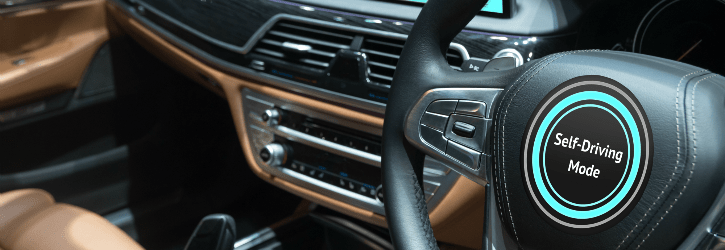
Sign-up to a data breach claim today - use our quick and easy form to begin your claim for thousands of pounds in compensation.
It’s no secret that many carmakers are racing ahead with self-driving car technology. Since Tesla brought the futuristic dream into reality, many other companies have quickly followed suit.
Here in the U.K., we have seen government approval for the creation and testing of these autonomous cars on our motorways in a bid to be at the forefront of this new and innovative technology. However, there is still one major hurdle – aside from robot cars crashing due to mistakes that cannot be rectified by anything other than human reaction – and that’s hacking fears.
Today, news of massive data breaches never seem to be far from our headlines – as are references to Tesla, Volvo and Google self-driving technology. The volumes of third-party hackings have shown that nothing is impenetrable; we have seen massive companies like Equifax crippled by hacks, but also devices like the new iPhone X’s facial recognition feature being circumvented by security researchers.
If malicious hackers can get into our webcams and WiFi, what’s to stop them from hacking a car?
The advancing technology with self-driving cars will inevitably see them, it seems, become completely autonomous. Self-driving cars use cameras and sensors to ‘see’ the surroundings whilst using the internet to connect to virtual maps to get from A to B.
It is that connection that is vulnerable to hacking.
Ex-NSA hacker, Charles Miller, and Director of vehicle safety research for IDActive, Chris Valasek, have already demonstrated that they can hack a car, from its back seat or miles away from the safety of their own homes. In this experiment, the researchers fiddled with the radio and air conditioning remotely. Each time Miller and Valasek changed settings within the car, the driver was unable to manually override it. The result of the experiment saw the two cyber experts eventually controlling the car’s steering using a laptop before killing the car’s power, leaving the driver powerless to keep the car going whilst driving on the busy motorway.
The experiment was conducted with a Jeep Cherokee and the experts were able to hack into its internet connection through the entertainment system. The software used to hack it took an entire year to develop, but it shows that with the right skill and time investment, cars can be hacked. With completely autonomous cars, they rely heavily on a complicated set of connections to ‘think’ and control the car.
Consumer watchdog’s privacy project director, John Simpson, shared his concerns over the new technology. Referring to the above experiment, Simpson said:
“…the vulnerability has been demonstrated and I think it’s only going to get worse with autonomous vehicles.”
Other researchers have also found that simply altering road signs can be enough to stump car sensors who might think a stop sign is a 45mph speed limit sign.
To say that the Government wants to have self-driving cars on the roads by 2021 seems absolutely terrifying.
Former Top Gear presenter and motoring expert, Jeremy Clarkson, believes that the technology is simply not ready and feels we still have a “long way to go”… Perhaps the government are a bit too eager to get ahead of the technology before they even understand what’s at stake and the corners they’re cutting to get there.
Vehicle safety is incredibly important. There are millions of cars, buses, trucks etc. already on our roads and the rush to stick advanced but incomplete software on our busy highways alongside conventional drivers is incredibly risky.
EasyJet admits data of nine million hacked
British Airways data breach: How to claim up to £6,000 compensation
Are you owed £5,000 for the Virgin Media data breach?
Virgin Media faces £4.5 BILLION in compensation payouts
BA customers given final deadline to claim compensation for data breach
Shoppers slam Morrisons after loyalty points stolen
Half a million customers can sue BA over huge data breach
Lawyers accuse BA of 'swerving responsibility' for data breach
The biggest data breaches of 2020
Fill out our quick call back form below and we'll contact you when you're ready to talk to us.